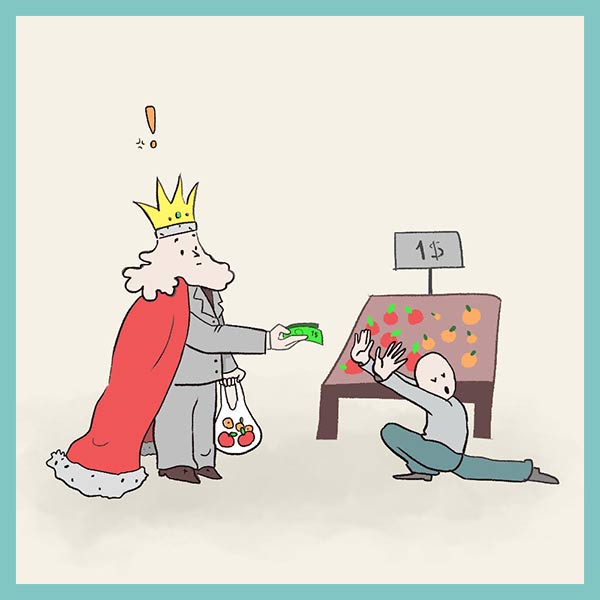Taarof in Iranian Culture

(B1 مُناسب برایِ فارسی آموزانِ سَطح )
قابِل نَداره
امروز قَرار است دربارهی یکی از رایِجترین اِصطِلاحاتِ تعارف در ایران برای شما بگوییم. اگر تا اَلان حَتّا یک روز در ایران زندگی کرده باشید، اِمکان ندارد این جُمله را نشنیده باشید. دُرُست حَدس زَدید. این جمله ی مَعروف، «قابِل نداره» است که در سوپرمارکت، تاکسی، هِنگامِ خرید و حتّا در گُفتگو با دوستانتان هم ممکن است آن را بشنوید. اما «قابِل نداره» چه مَعنایی دارد و چِطور اِستفاده میشود؟
(Farsi Level: B1)
qâbel nadâre(h)
This article will teach you one of Farsi’s most prevalent “tâ’rof” phrases. If you have been to Iran even for a day, you have surely heard this expression. Good guess, this famous sentence is “qâbel nadâre(h).” You may hear it in supermarkets, taxis, shopping centers, and even with your friends. But what does “qâbel nadâre(h)” mean, and where is it used?
مَنظور از جملهی «قابِل نداره» این است که پول یا کاری که ما انجام دادیم در برابرِ شما اَرزِشی ندارد. این اِصطِلاح در زبانهای دیگر مُعادِلهایی دارد. اما باید بدانیم که کجا و در چه بافتی از آن استفاده میشود. در این مَتن، سه کاربرد اِصطِلاح «قابل نداره»(قابِلی نَدارَد) و «ناقابله» (ناقابل است) را به شما یاد میدهیم.
The phrase means that what you have bought from us or what we have done for you is not as valuable as you are. The sentence is equivalent to “de rien” in French or “don’t mention it” in English. But it is important to know where and how to use the expression. In this article, we’ll glance at three different contexts you may encounter “qâbel nadâre(h)” and “nâqâbele(h).”
مُوقِعیَتِ اول، هِنگامِ پَرداختِ پول است. مثلاً شما سوارِ تاکسی میشوید و بعد از رسیدن به مَقصَدتان مثلِ هرجای دیگری در دنیا باید هَزینهی استفاده از این خَدمات را بِپردازید. اما وقتی از رانندهی تاکسی بپرسید: «کرایهی من چِقَدر شد؟» تَعارف شُروع میشود. بیشتر رانَندهها اِبتدا به شما خواهند گفت: «قابِلِ شما رو نداره». البته که باید یادتان باشد که این فَقط یک تعارف است و مَنظورِ رانَنده این نیست که لازم نیست شما پولی پَرداخت کنید. حالا باید چه کار کنید؟ شما هم تعارف کنید. چطور؟ خیلی ساده است. بگویید «نه خواهش میکنم، بفرمایید چِقدر شد». از آنجایی که «قابِل نداره» فقط یک تعارف است، این اِمکان هست که راننده از شما سه برابر بیشتر کِرایه بگیرد. این «قابل نداره» و «خواهش می کنم»، تقریباً در هر مُوقِعیَتی که شما پولی پَرداخت کنید تِکرار میشود.
The first context for using this expression is when you ask for a price or want to make a payment. For instance, you take a taxi, and like all over the world, you need to pay for the ride when you get off. But ask the driver how much the fee is, and the “tâ’rof” will start. You will probably hear “qâbel nadâre(h)” in reply. But do not forget that this is only a “tâ’rof.” The driver is not serious when he says you do not need to pay. How should you react? You should also do “tâ’rof.” How? By saying “na(h), xâhš mikonam, befarmâyid čeqadr šod,” which means “please let me know how much it is.” Since the drivers do not mean “qâbel nadâre(h),” they usually charge you three times more. You will hear this “tâ’rof” wherever you need to pay for something.
یکی از اِستِفاده هایِ دیگرِ «قابل نداره» وَقتی است که شما از چیزی خوشتان آمده است و از آن تَعریف میکنید. تَصَور کنید دوستِ شما یک کیف خریده که به نَظَرتان خیلی زیبا است. شما به دوستتان میگویید:
Another context for using this expression is when someone likes something and admires it. Imagine one of your friends has bought a purse that seems very beautiful to you. You give compliments and say:
«واااای چه کیفِ خوشگلیه، چه خوشرنگه».
vây, če(h) kif-e xošgelie(h), če(h) xoš range(h).
What a pretty bag, what a nice color!
اِنتظار شما از دوستتان این است که در پاسُخ تَشَکُر کند. اما احتمالاً این جَواب را خواهید شنید:
You expect a “thank you” from your friend, but you probably would hear this in response:
«مرسی عزیزم، چشمات خوشگل میبینه. اصلاً قابلی نداره، دوس داری مالِ تو».
mersi azizam, češmât qašang mibine(h), aslan qâbeli nadâre(h), dust dâri mâl-e to.
Thanks darling, you see it beautiful. You know what? It is nothing. Now that you like it, you can take it.
اما این فَقَط یک تعارُف است، حَواستان باشد که گولِ آن را نخورید. شما در جواب باید بگویید:
But be careful not to be trapped. This is a mere “tâ’rof.” You should reply:
«ممنونم، صاحِبش لازم داره» یا «ممنون، مبارکت باشه».
mamnunam, sâhebeš lâzem dare(h), | mamnun, mobâraket bâše(h).
Thank you, the owner needs it | Thanks, enjoy using it.
اما عَجیبترین کاربُردِ «قابل شما رو نداره» زمانِ هَدیه دادن و هَدیه گرفتن است. بَرای مثال، روز تَوَلُدِ شماست و دوستانتان برای شما هَدیهای خریدهاند. اما هِنگامی که هَدیه را به شما میدهند چیزهایی میشنوید مثلِ:
But the most astonishing usage of this expression is when someone gives you a present. For instance, it is your birthday, and your friends have bought you nice gifts. As you receive them, you may hear some “tâ’rof” such as:
«ببخشید تو رو خدا، ناقابله».
«یه هَدیه ی کوچیکه، قابلت رو نداره».
یا «شَرمَنده، خیلی هدیهیِ ناچیزیه».
– bebaxšid to ro xodâ, nâqâbele(h).
– ye(h) hadiye(h)-ye kučike(h).
– šarmande(h) xeyli nâčize(h).
– Forgive me, for God’s sake, it is not a valuable gift.
– It’s a small gift, it is not worthy.
– I feel embarrassed for such a small gift.
اَمّا یادِتان باشد که دوستان شما هم در حال تعارُف کَردن هَستند و این جُملهها هم تَعارف هستند. برای این که چند پاسُخِ مُناسب برای این تَعارف داشته باشید، بهتر است این جُملهها را حِفظ کنید:
But remember that your friends do not mean what they say. They make these “tâ’rof” so that you appreciate their gifts more. So, you’d better be prepared for the response. Equip yourself with these phrases:
– lotf dâri, xeyli ham arzešmande(h).
– mamnun, mohabbat dâri.
– xeyli lotf kardi.
– It’s your kindness, (your gift) is very precious.
– Thanks, you are very kind.
– You did me a big favor.
یادِتان باشد که برایِ یادگرفتنِ زبانِ فارسی و به کاربردنِ درستِ اِصطِلاحات، باید دربارهی فَرهَنگ و روابطِ اجتماعی در ایران نیز یاد بگیرید. مُعَلمهای فارسیموند برای یادگیریِ کاملِ فارسی در کنارِ شما هستند. اگر پُرسِشی داشتید در نَظَرات یا از طَریقِ واتساپ از ما بپرسید.
To learn Persian expressions and use them correctly, you need to know about the culture and social relations in Iran, too. FarsiMonde’s tutors are here to help you with all these details. If you have questions about culture, politeness, or social relation ask them in the comments or message us via WhatsApp.
Why to learn Farsi ..? To help you learn Farsi, our experienced Online Farsi tutors in FarsiMonde provide you with the best online Farsi classes and offer you the best Farsi learning methods.


Leave A Comment